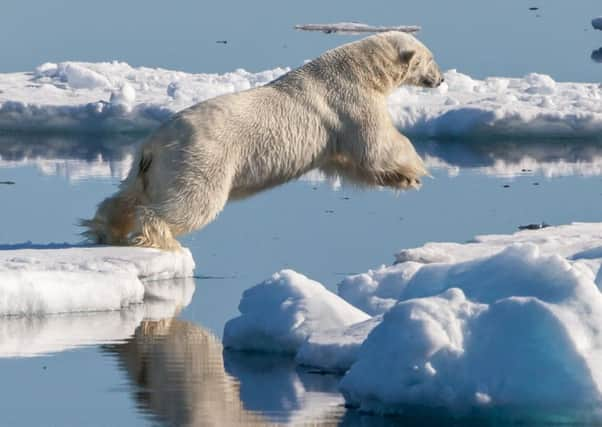Oban to host UK conference on Arctic research


The Argyll town will host the fifth UK Arctic Science meeting in September, bringing together researchers from around the world with a common interest in the polar environment.
Global warming will be top of the agenda, with the Arctic having seen some of the most dramatic changes in climate over the past few decades, with ice melting at a quicker rate each year.
Advertisement
Hide AdAdvertisement
Hide AdWhile the daily average global temperature rose by 0.55 degrees Celsius from 1979 – 2000, the temperature in the Arctic rose by 6.42 degrees Celsius for the same period. The average Arctic sea ice cover for November 2016 set a record low, leading to suggestions that sea ice cover could be at a tipping point, from which that the region may not recover.
The Scottish Association for Marine Science (SAMS), which will help organise the conference, recently celebrated a funding boost after two projects it leads were awarded £5m.
The two SAMS projects, Arctic Prize and Diapod, aim to understand changes in the Arctic and how they will affect the climate, ocean properties, marine life and food stocks across the northern hemisphere.
Professor Nicholas Owens said: “SAMS is synonymous with research in the Arctic - a region that is giving us a window into the pace and effects of climate change.
“We hope these two projects will give a unique insight into the extent of these changes and leave us better informed about how we can help nations across the northern hemisphere prepare for the future.”
Diapod, led by Professor David Pond, will examine the effect of a warming Arctic Ocean on the copepod Calanus - a small shrimp-like animal that is a vital source of food for seals and whales but is believed to be reducing in number.
Arctic Prize, led by Dr Finlo Cottier, will seek to establish a year-round picture of the Arctic ecosystem, using robotic systems based at SAMS’ NERC-funded Scottish Marine Robotics Facility to collect data during the relatively unexplored polar winter.